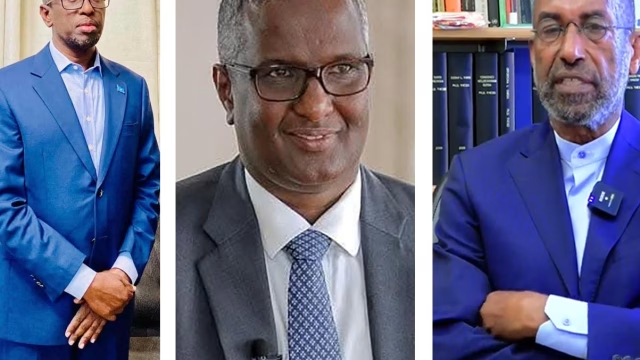The UK’s Department for International Development (DFID) has escaped drastic cuts despite a tough austerity budget,…
 The UK’s Department for International Development (DFID) has escaped drastic cuts despite a tough austerity budget, but in a new report the National Audit Office has told the government it should get better value for aid to overseas primary education, and take “a tougher, clearer stance” on costs and performance. Andrew Mitchell, the new development minister, said there would be a spending review.
The UK’s Department for International Development (DFID) has escaped drastic cuts despite a tough austerity budget, but in a new report the National Audit Office has told the government it should get better value for aid to overseas primary education, and take “a tougher, clearer stance” on costs and performance. Andrew Mitchell, the new development minister, said there would be a spending review.
An expected total spend of around US$1 billion this year – mainly to support national education in developing countries by direct funding, technical assistance, and programmes for textbooks, school buildings and teacher training – makes the UK one of the biggest donors, alongside the Netherlands and the World Bank.
The Audit Office accepted that DFID had successfully helped developing countries increase primary school enrolment and improve educational chances for girls, but said educational quality and attainment were still at very low levels; it had helped deliver quantity, but not quality.
The report quoted studies from Ghana which found that children halfway through primary school were less proficient in maths and English in 2007 than they were in 2005.
Dropping out
Drop-out rates were also very high: in some of the poorer parts of India, three-quarters of children left before finishing school; Ethiopia’s education ministry said 18 percent dropped out in their first year.
The findings were no surprise to Elin Martinez, Education Advocacy Advisor to Save the Children UK, who told IRIN they had been pushing governments to look at how many children were going into school, and then dropping out.
Although more girls were going to school, “We also have to look at other disadvantaged categories – children with disabilities, children from minority groups, children not being taught in their mother tongue; these make a up a significant proportion of those who drop out of school.”
Martinez said the UN Millennium Development Goals (MDGs) had focused governments’ attention on statistics, but “They should be asking whether these children are being given the skills they need to live.”
The report was scathing about the quality of teaching and teachers. A study in India showed 25 percent of teachers were absent on any given day; Ethiopia received substantial funding for primary education but the weakest students were chosen to be trained as teachers.
Some of the problems were the result of success: increased primary school enrolment put a strain on the system and brought in children from poorer and less educated families who often needed extra support.
“Some of the problems are pretty intractable,” the Audit Office’s Director of Value for Money Studies, Mark Andrews, told IRIN. “But we do have worries about how DFID articulates its concerns, and where its focus is. I think DFID has quite considerable influence, and we are looking for it to have that dialogue with the partner governments.”
DFID provides funding, but national education systems are the responsibility of their own governments. Still, Martinez believed DFID had a lot of potential leverage. “DFID could have a greater say, for instance, in the way teachers are trained, and the way they are treated by their ministries. Teachers are so crucial to the quality of education, and the cost of teachers is a very large part of any education budget.”
Pay attention
Save the Children said generally teachers were not paid enough, but the audit report noted that in Ghana and India teachers were paid more than three and a half times the average income. Teachers in the state system were paid more than in private schools, but schools were short of staff despite high unemployment among trained teachers because further expansion at current pay rates was unaffordable.
“Although we are auditors, it’s not just that we are being cheap,” said Andrews. “In some countries the unaffordability of teachers’ pay is going to act as a brake on the system.”
The crux of Audit Office criticism was that DFID had not always paid enough attention to whether the activities it funded were cost effective. Even where the costs of such things as teacher training in the various countries had been collated, wide variations in cost had gone unexplained.
It “only has fragmentary information about whether pay, materials, and school infrastructure costs have been minimised, or outputs, such as lessons taught and contract hours, have been maximised,” the report commented.
DFID accepted the criticism. Mitchell has been in his post for little more than a month, and the report was based on what happened under the previous government. “This report shows why this government is right to focus on results,” he said. “Value for money, transparency and effectiveness remain my top priorities.
IRIN NEWS


